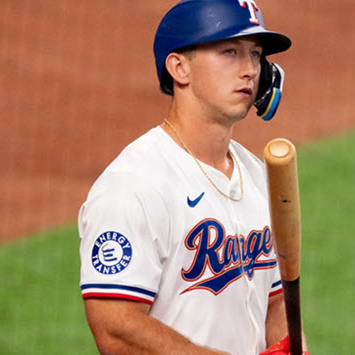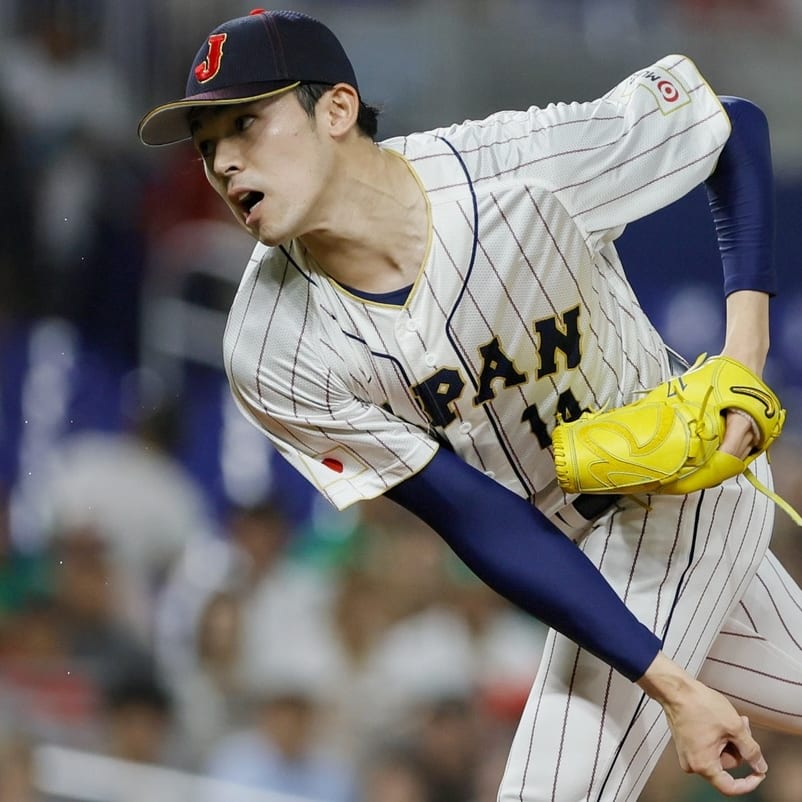This article is part of our John Sickels' Column series.
Prospect Mailbag, March 20, 2010
I get frequent questions from readers via email, and this year we'll turn them into a twice-monthly mailbag feature. Send your questions to [email protected] for consideration. I can't answer every question, but I read every one, and the best questions will end up in the mailbag.
Thom from Albany writes: Will Jesus Montero stick at catcher, or does he move to first base or DH?
The general consensus among prospect watchers pre-season was that Montero won't stick at catcher in the long run. However, the Yankees themselves say he's made significant progress refining his defense, and that they will leave him at catcher as long as possible to see if he can handle the position.
I interviewed Yankees Vice President Mark Newman earlier this week and posted the interview at my blog MinorLeagueBall.com.
Link to interview:
I asked him about Montero's defense, and this is what he told me:
"... the glove has improved a lot over the last year. He is a better defender and in better physical condition now than he's ever been. His throwing has improved dramatically. He has plus arm strength, which has never been an issue, but his footwork is better now. The main thing we are focusing on with Montero is improving his lower body flexibility. He is a very bright guy and can run a game. The jury is still out, but by both objective and subjective measures he's made great progress."
You might think this is
Prospect Mailbag, March 20, 2010
I get frequent questions from readers via email, and this year we'll turn them into a twice-monthly mailbag feature. Send your questions to [email protected] for consideration. I can't answer every question, but I read every one, and the best questions will end up in the mailbag.
Thom from Albany writes: Will Jesus Montero stick at catcher, or does he move to first base or DH?
The general consensus among prospect watchers pre-season was that Montero won't stick at catcher in the long run. However, the Yankees themselves say he's made significant progress refining his defense, and that they will leave him at catcher as long as possible to see if he can handle the position.
I interviewed Yankees Vice President Mark Newman earlier this week and posted the interview at my blog MinorLeagueBall.com.
Link to interview:
I asked him about Montero's defense, and this is what he told me:
"... the glove has improved a lot over the last year. He is a better defender and in better physical condition now than he's ever been. His throwing has improved dramatically. He has plus arm strength, which has never been an issue, but his footwork is better now. The main thing we are focusing on with Montero is improving his lower body flexibility. He is a very bright guy and can run a game. The jury is still out, but by both objective and subjective measures he's made great progress."
You might think this is Yankee spin, but I've heard similar things from non-team sources. Statistically, Montero has improved his defense against baserunners quite a bit over the last two seasons, throwing out 32% last year in Double-A. He will never be a Gold Glove, but if his defense can be even mediocre, he could stick behind the plate for a few years at least. Obviously the Yankees would love it if he can replace Posada.
Basically the answer to your question is the one Newman gave: the jury is still out, but Montero has improved, and there is a not-insignificant chance that he can be a catcher, at least early in his career. His bat will play at any position, but it will be easier for the Yankees to fit him into the lineup as a backstop. It would also improve his trade value too if they go that route.
-----
Ken from California asks: I've been following Dodgers prospect Kyle Russell. He hit 26 homers and 39 doubles last year at Great Lakes, but he struck out 180 times. Does he have a chance to hit at higher levels?
Russell was a third round pick in 2008 from the University of Texas. He had first round tools: he's a strapping 6-5, 190, hits from the left side, runs well, has a strong throwing arm, is an excellent defensive outfielder, and has enormous power. As you pointed out, he showed first-rate extra-base ability last year in the Midwest League, which is not a particularly easy place for power hitters given the cold weather early in the year and relatively large parks. But as you also pointed out, his strikeout rate is scary-high. Indeed, concerns about his ability to make contact against good pitching kept him out of the first two rounds of the draft despite his tools. His overall line last year was .272/.371/.545 with 20 steals in 22 attempts and a +30 OPS for the Midwest League.
Russell makes an effort to work counts and drew 72 walks last year, so he's not a true free swinger in the sense of chasing everything outside the strike zone. His swing looks good mechanically, but it can get rather long when he gets too power-conscious, which is frequently. When he makes contact the ball just flies, but he just seems to swing and miss a lot. Scouts have a lot of doubts about how this will play at higher levels, but because of his tools the Dodgers will give him every opportunity. He isn't just a one-dimensional slugger; he can run and field and throw, so they will be patient.
He turns 24 in June, so my guess is that they will be relatively aggressive about promoting him this year if he gets off to a good start. How he handles Double-A will tell us a lot.
-----
Bobby K. writes: Would you trade Jake Arrieta for Josh Bell?
I like both of these Orioles prospects. I gave Arrieta a weak Grade B+ in my book and ranked him number 25 on my Top 50 Pitching list. I gave Bell a strong Grade B and ranked him number 38 on the hitter list.
But if I had Arrieta, yes I would consider trading him for Bell. Why? Because Arrieta is a pitcher and Bell is a hitter, and Arrieta has more risk because of his profession. This is another reason why I don't regard prospect grades for hitters as being directly comparable with prospect grades for pitchers.
Now obviously, much depends on what context you are talking about. If my fantasy team is weak in pitching but strong in hitting, then Arrieta is likely more valuable to me and I probably wouldn't make the trade. But if I need a young hitter and am happy with my pitching depth, then yes I would strongly consider this trade even though Arrieta got a slightly higher grade from me pre-season.
This is a good example of why you have to consider all factors including team context when making a decision. The situation is everything, but without knowing more about your exact team and league situation it is hard to give a valid yes/no answer.
-----
James D from Rhode Island asks: There has been talk about the Mets bringing Jenrry Mejia north as a reliever. What do you think about that? Would that harm his development?
Mejia is having a strong spring so far (one run in 8.1 innings, five hits, 8/0 K/BB) and there have been rumors of him earning a spot in the Mets pen.
If he has to go north, I would rather him pitch in the bullpen than in the rotation. I am a strong believer in the old Earl Weaver philosophy of letting a rookie pitcher get his feet wet in the bullpen before pushing him into a starting role.
But personally, I think that opening him in the majors to begin 2010 would be a mistake in any role. I know he's pitching well right now, but he was erratic last year in Double-A (4.47 ERA, 47/23 K/BB in 44 innings, 44 hits) and downright horrendous in the Arizona Fall League. That counts just as much as eight innings in spring training. Mejia has terrific stuff and is throwing strikes so far in '10, but he's only 20 years old, has just 10 starts in Double-A under his belt, and could really use additional minor league time to lock in his command and refine his secondary pitches, which were erratic last year.
Ideally, I would send Mejia back to Double-A to begin '10. I'd give him 10 starts at Binghamton and then reassess. If he's pitching well, I would move him to Triple-A at that point, give him 10 more starts there, then reassess again. If he looks good at that point, then I would consider promoting him to the majors and use him in long relief down the stretch.
I regard even this suggestion as an aggressive promotion schedule considering his age and experience level. A more conservative, Tampa Bay Rays-like approach would be to leave him in Double-A and Triple-A all season, with a major league promotion not on the table at all until September at the earliest. I think that would be the course of action most likely to be in Mejia's interest.
The Mets do their own thing, of course, and sometimes the needs of the many outweigh the needs of the few, or the one.
Article first appeared 3/20/10









